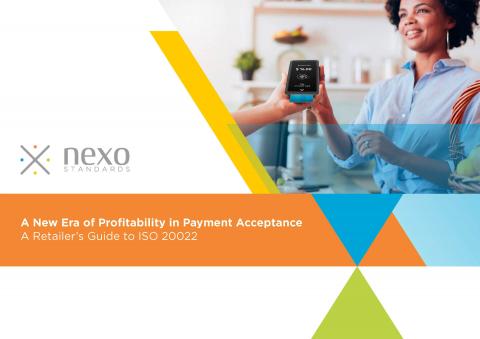
Nordic Initiative Forms Strategic Partnership with nexo standards to Improve Nordic Payment Systems
Paris, May 12th, 2025 - The Nordic Initiative has established a strategic partnership with nexo standards to transform payment systems across the Nordic Tier 1 consumer-facing industries. This collaboration aims to develop standardized payment solutions to benefit businesses and consumers throughout the region.
The partnership unites major Tier 1 members of The Nordic Initiative across industries and Nordic borders to create payment solutions that enhance merchant flexibility while improving customer experience.
"This collaboration demonstrates our commitment to creating better solutions for the consumers while providing significant benefits to all of our members"
Why nexo standards?
As different strategic paths were explored, the Nordic Initiative concluded that nexo standards provides an ideal foundation for fostering cooperation, healthy competition, and innovation. With its robust global membership base, nexo standards brings together key players across the payments ecosystem.
“This partnership enables us to help shape global developments through the newly established Merchant Advisory Council (MAC), where the Nordic Initiative will play a central role in defining the future of payment systems. The collaboration also represents a step toward a stronger European coalition, as the platform welcomes all suppliers who adhere to the specifications”
Cost-Efficient and Flexible
“The partnership prioritizes interoperability - creating merchant systems that work seamlessly together regardless of provider. This approach ensures service interfaces can integrate with various systems without restrictions, giving merchants greater operational flexibility. This will contribute to a more robust and cost-effective critical infrastructure that benefits society as a whole, while simplifying collaboration across national borders”
“Adopting shared standards will make it easier for retailers to integrate new payment service providers or partner with best-in-class vendors greatly minimizing implementation costs and service disruptions. This will make interoperability easier, foster innovation and overcome the challenges posed by proprietary systems”
“This is exciting. We will explore how various services can be integrated into the unified merchant solution—covering services like buy-now-pay-later, account-to-account transfer and loyalty programs”
Consumers will benefit from more consistent payment experiences across different retailers. The standardization will streamline transactions while enabling merchants to implement new payment options more efficiently.
For more information
Iren Tranvaag, CEO at Nordic Initiative: iren.tranvaag@nordicinitiative.com +47 906 07 558
Erik Torkildsen, Manager Identification & Payments at Rema 1000: erik.torkildsen@rema.no, + 47 934 64 701
Kai Lindström, VP at S Group: kai.lindstrom@sok.fi, +358 40 658 5724
Lars Erik Fjørtoft, Partner at PWC and overall project lead and responsible for initiatives and integrations: lars.fjortoft@pwc.com, +47 974 74 469
nexo standards: nexo-standards@iseepr.co.uk
About Nordic Initiative: The Nordic Initiative serves as the meeting point, coordinator, and facilitator, fostering collaboration among high achievers within Nordic Tier 1 companies across industries and borders. Its ambition is to pioneer innovative, customer-centric solutions, driving sustainable growth, and setting new benchmarks for excellence in the Nordic retail landscape.
About nexo standards: nexo standards is an international non-profit association headquartered in Brussels, Belgium. As a community of leading payment experts, its mission is to define, publish and promote global payment acceptance standards and supporting services that ensure interoperability between card acceptance and acquiring solutions, integrated retail and terminal management systems.

Removing Barriers in Air Transport Retail Payment Acceptance with nexo standards
nexo standards has published its latest paper, “Chocks Away: Removing Barriers in Air Transport Retail Payment Acceptance with nexo standards”.
The paper explores fragmentation in air transportation payment acceptance systems and shines a light on how, by adopting nexo standards the sector has an opportunity to revolutionise payment acceptance. The paper explores the benefits of...



